by Catherine (Student Blogger: BA Hons Advertising and Marketing)
Hey fellow students!
As third week is in full swing, and the un-avoidable stress starts to linger, here’s just some advice on how to make sure you’re on top of your game (and on top of those deadlines), whilst still looking after yourself and keeping those stress levels as low as possible.
Organise Organise Organise.
The first and probably best thing you can do at the start of any year is to organise your upcoming term. Usually I find that making a list of exactly what modules I have each term is the best way to get started. Under each module, I write a list of each assignment I have, that way I know exactly what I’m up against this term. I write these types of lists on an app called Wunderlist- downloading it makes all the difference to my organisation levels.
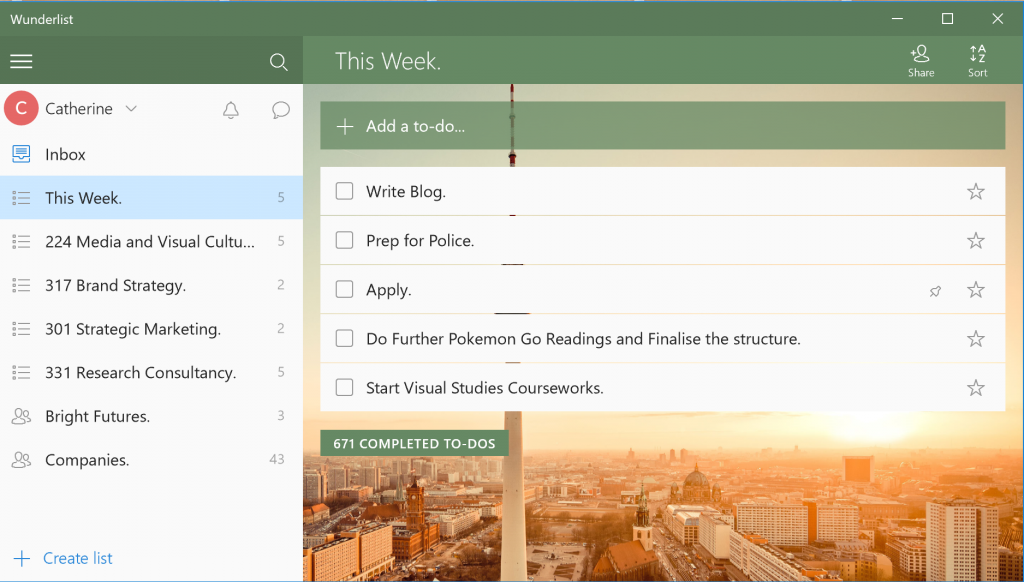
Here’s what my Wunderlist looks like, adding a list called ‘This Week’ with ‘to do’s’ in for that week helps me stay productive throughout the week
Move Around.
I find one of the worst things about being bogged down with coursework all week long is being shut inside the library for what seems a lifetime. I often find that staying in the same place for a long period of time to do work may seem productive, but can actually have a really negative effect on my concentration levels. Every time you study in a different place, I think you are forcing your brain to form different associations (in the real world) with your study material. Although they are great, there are also a bunch of other places to study other than the library and the Learning Zone. Here’s a few I like to study at:
Costa, Pizzetta, Starbucks (in Cartmel, although it’s a trek it’s usually really quiet), Atkinson’s, Bowland bar is usually pretty quiet too, and they have plugs. Juicafe in town is also usually quiet and creates quite a chilled atmosphere for a bit of researching/reading.
If you go behind the Environmental Sciences building, there’s a quiet seating area with plugs and vending machines.
Eat Healthy.
I used to be awful at this, and until a friend pointed out that I don’t eat often enough, and when I do, it’s all unhealthy, I never understood the huge benefits of eating often, and healthily. Within just a few days of trying, I saw the positive effects it had on my productivity immediately! I had much more energy, and felt more upbeat about my day ahead. I also found myself being able to memorise and concentrate much more throughout the day. I’d say eating more healthy made me 10% more productive, and in a much better mood/mindset about my work throughout the day.
If you’re looking for inspiration, here’s some great places to look!
- BBC Good Food
- Time Health.
- WH Foods.org
- Tasty (Youtube)
Hopefully some of this is useful and helps you make first term as productive (and enjoyable) as possible!
Enjoy x x x
Catherine


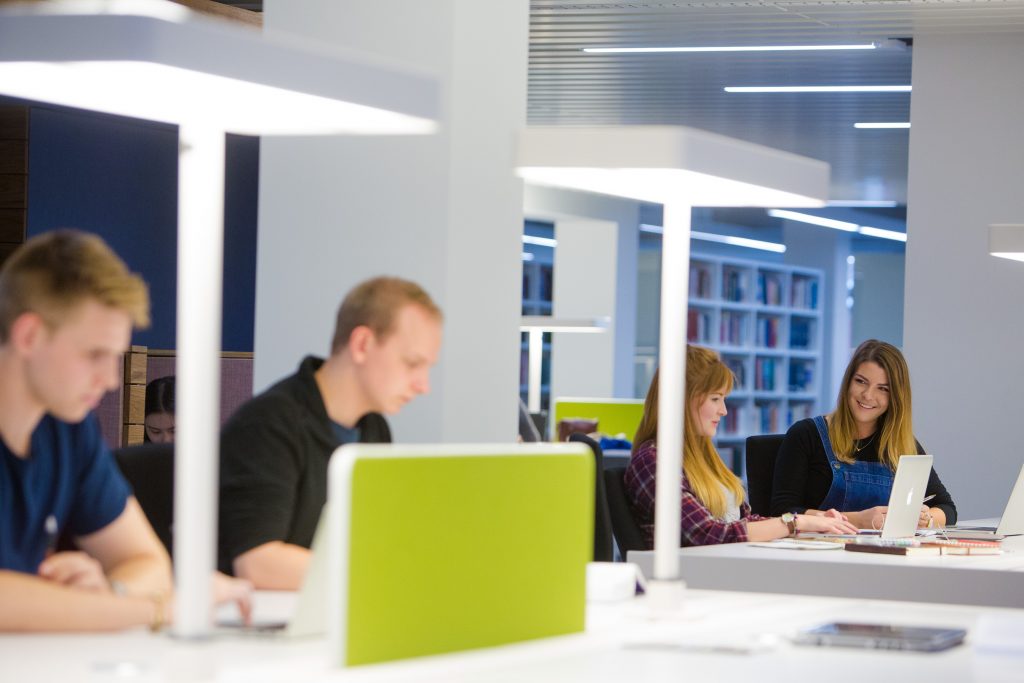 by Hannah (Student Blogger: BSc Biological Sciences)
by Hannah (Student Blogger: BSc Biological Sciences) 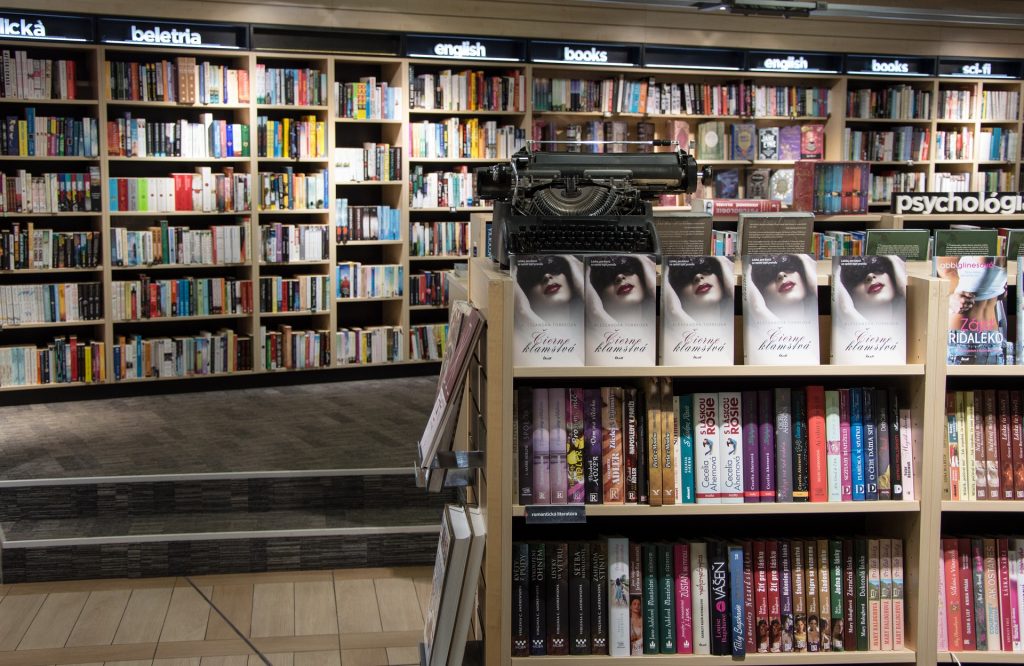 by Melissa (Student Blogger: MA English Literature)
by Melissa (Student Blogger: MA English Literature)
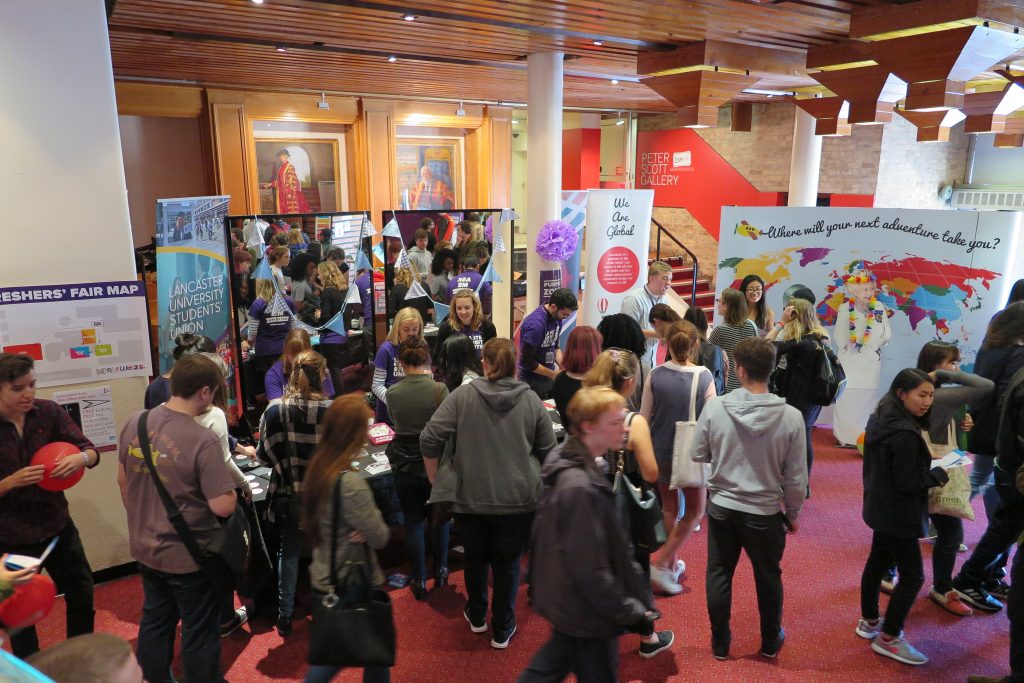
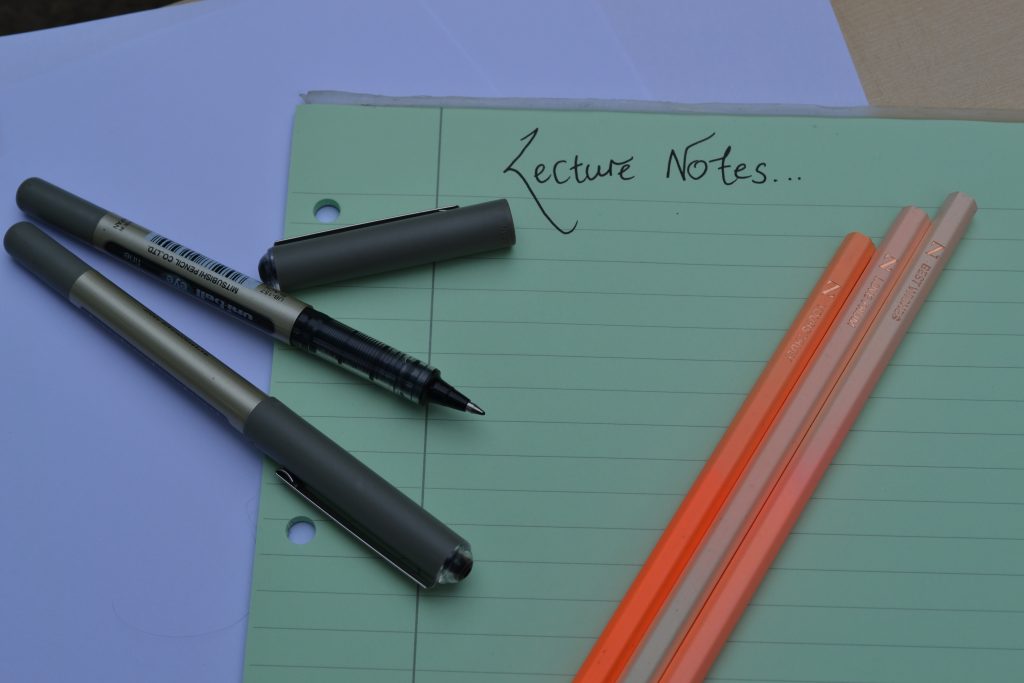
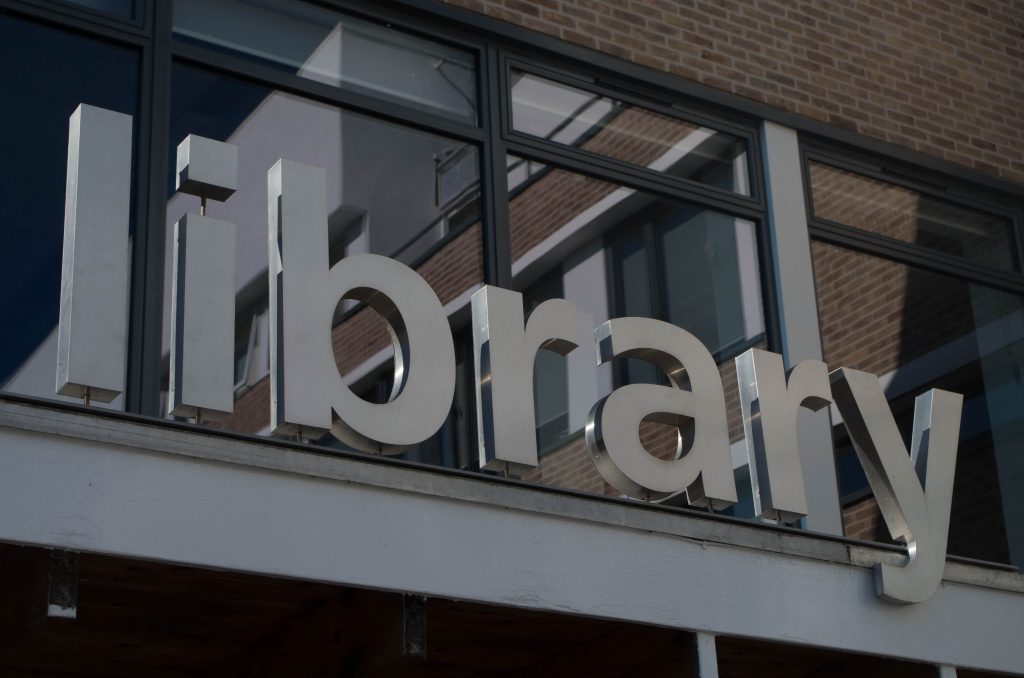
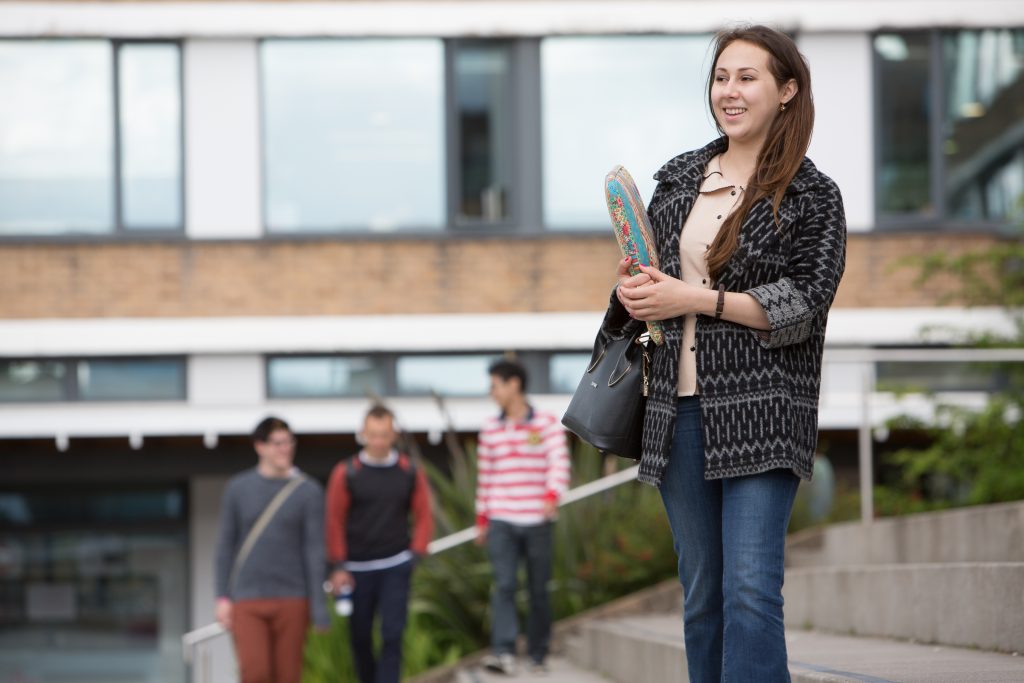 by Catherine (Student Blogger: BSc Computer Science)
by Catherine (Student Blogger: BSc Computer Science)